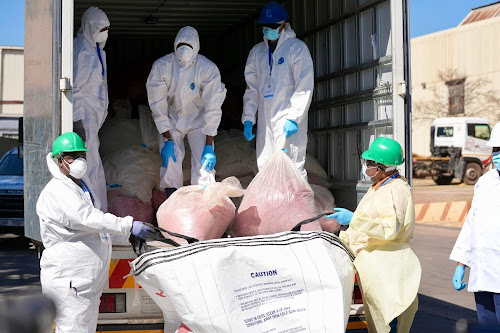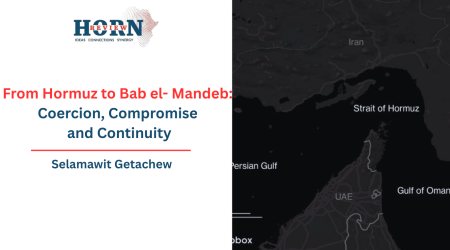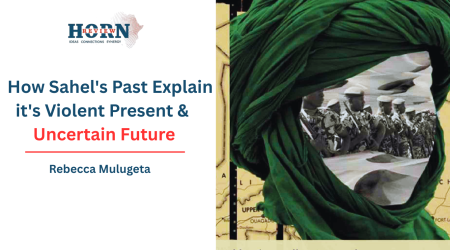
15
Sep
Balkan Cartels At Africa’s Shores: How West African Ports Became A Global Drug Hub
West Africa’s maritime ports are expanding rapidly, reshaping the region’s position in global trade. From Dakar to Freetown, new container terminals and infrastructure are marketed as gateways to integration and prosperity. But behind this growth lies a darker transformation: these same routes have become critical chokepoints in the global cocaine trade. What should serve as engines of regional development are increasingly being turned into safe harbors for drug cartels, smugglers, and transnational crime.
The Gulf of Guinea and Atlantic corridor linking West Africa to Europe and Latin America has become the preferred path for traffickers, with cocaine seizures in the region surging from an average of 13 kg annually (2013–2020) to over 1,466 kg in 2022 alone in Sahel countries like Mali, Chad, Burkina Faso, and Niger. The choice is no coincidence. Direct routes from Brazil to European ports have come under heavy surveillance, pushing cartels to diversify through Africa. In this vacuum, West African ports like the Gambia, Senegal, Sierra Leone, Guinea-Bissau, and Cape Verde have become indispensable. Geography, weak enforcement, and fragmented governance have made them logistical hubs for storage, repackaging, and shipment of multi-tonne consignments, often concealed in legitimate cargo like fruit or industrial salt.
At the center of this new reality are Balkan criminal syndicates. Groups from Montenegro, Serbia, and Albania, already entrenched in Europe’s cocaine markets, have expanded their operations into West Africa since 2019. The Kavač and Škaljari clans, notorious for their violence, now oversee routes stretching from Brazil to Freetown, with brokers coordinating logistics and establishing warehouses. Albanian-speaking groups, long active in Spain and Brazil, have embedded themselves in Senegal and Gambia, often working in tandem with Italy’s ‘Ndrangheta or Brazil’s Primeiro Comando da Capital (PCC). These are not marginal actors; they are among the most sophisticated criminal organizations in the world, operating with brokers who quietly manage consignments across multiple ports. Their growing presence in Africa is not only criminal it is political, reshaping local power dynamics through corruption and alliances that extend to state officials.
The logic of West Africa’s vulnerability is simple. Enforcement is weak, infrastructure is porous, and corruption thrives at every level of port and customs administration. For traffickers, the risks are minimal compared to the profits, with wholesale prices dropping significantly e.g., a 60% decline in Ghana from 2019 to 2023, signaling increased availability. But for the region, the consequences are existential. The same dynamics seen in Sudan’s war where human trafficking, weapons smuggling, and drug routes flourished amid governance vacuums, fueling heroin and cocaine transit from the Red Sea while local consumption of synthetics like Tramadol and Captagon surges could easily replicate in coastal West Africa. Once illicit economies take root, they are nearly impossible to uproot without destabilizing entire states, as evidenced by rising local crack cocaine use in cities like Agadez, Niger, where traffickers pay in-kind.
The implications go far beyond narcotics. First, corruption at the border corrodes state legitimacy. Just as the Western Balkans faced rising risks of customs officials being co-opted, West African countries now face the same scenario, with money laundering via cryptocurrencies and informal economies amplifying the issue. Once criminal groups infiltrate state structures, it creates a cycle where politics, ports, and profit are indistinguishable. Second, the overlap between trafficking corridors and insurgent territories is alarming. The Sahel is already aflame with terrorism and militancy; injecting cartel money into these fragile ecosystem’s risks financing extremist groups, feeding instability that can spill over into neighboring regions. Third, these networks are not temporary. Since 2019, Balkan groups have firmly entrenched themselves in West Africa, building logistical and financial infrastructures that go largely undetected by local and international security services, as seen in recent multi-tonne seizures like 3.3 tonnes in Ghana (2025) and 2.63 tonnes in Guinea-Bissau (2024).
In the long run, the region risks becoming a narco-logistics platform for Europe. This means development projects tied to port expansion may unintentionally strengthen criminal networks rather than trade. It also means African states are confronted with a new form of external penetration one less visible than military bases or diplomatic alignments, but just as corrosive to sovereignty. The narrative of Africa as a corridor for global criminality undermines investment, security partnerships, and the legitimacy of governments already under pressure from internal unrest.
What can be done? The scale of the threat demands more than national law enforcement it requires a cross-continental strategy.
First, port authorities, customs, and coastguards across West Africa must be connected through real-time intelligence sharing, supported by regional bodies like ECOWAS and the AU, and enhanced with technologies like AI-driven scanners and blockchain for cargo tracking. Second, African states must develop joint task forces with European and Latin American partners, not only for interdiction but also for dismantling the financial networks that keep these groups alive, including targeting cryptocurrency flows.
Third, anti-corruption reforms in customs and border management cannot be postponed. Without integrity in ports, no amount of patrol boats or scanners will make a difference. Fourth, international agencies INTERPOL, UNODC, EUROPOL should work more directly with African governments to strengthen container inspections, forensic capacity, and asset seizure regimes, expanding frameworks like Europol’s Balkan Cartel taskforce to include West Africa.
This is no longer a peripheral issue. The rise of Balkan cartels in West Africa shows that criminal groups see the continent not just as a passage, but as a permanent logistical hub. If left unchecked, the combination of organized crime, corruption, and militant financing will not only destabilize fragile states but also erode Africa’s hard-won sovereignty over its own ports and trade corridors. West Africa’s future depends on whether its governments and partners can act before development routes become irreversibly captured by narco-trafficking networks.
By Surafel Tesfaye, Researcher, Horn Review










